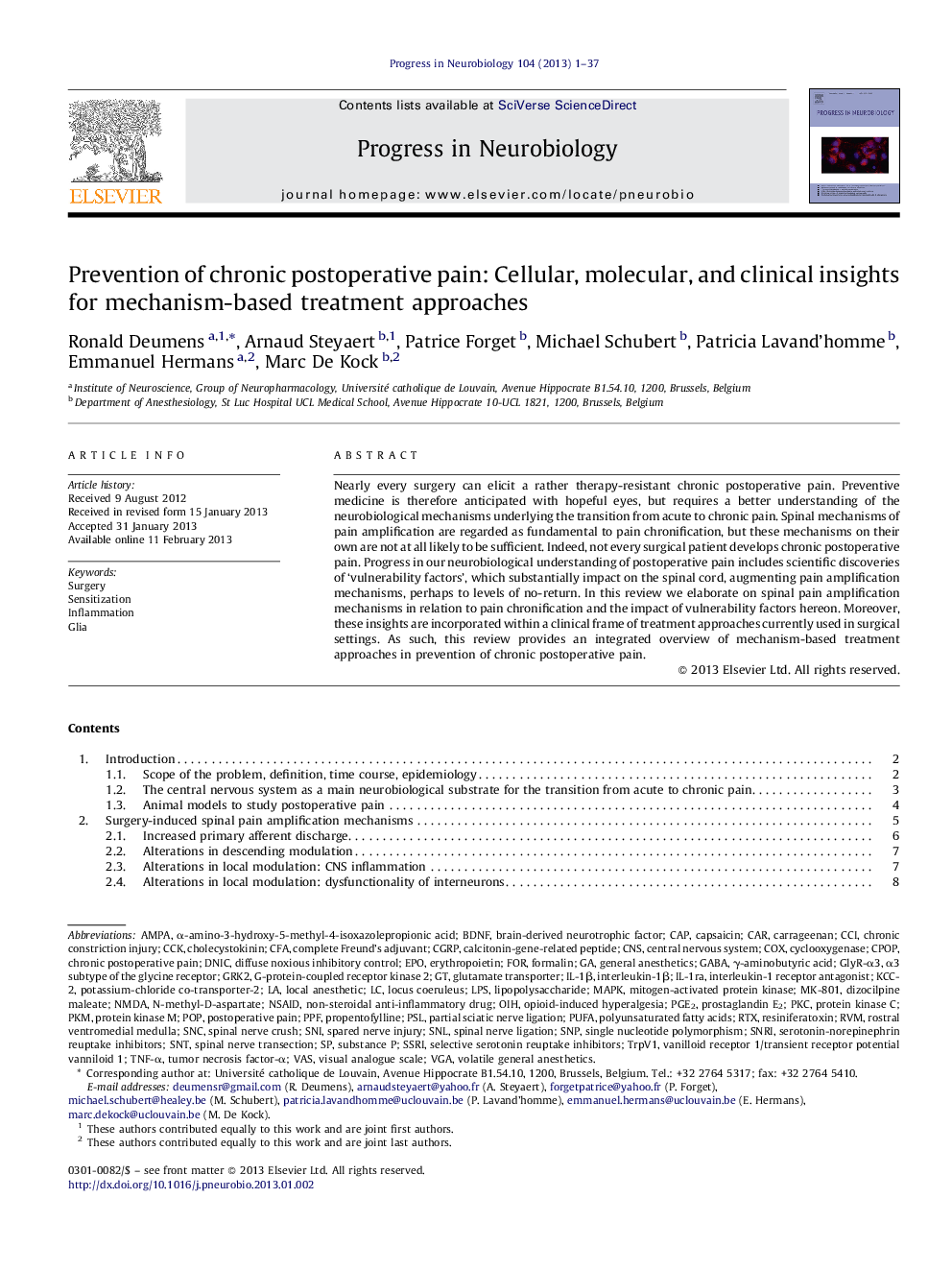| Article ID | Journal | Published Year | Pages | File Type |
|---|---|---|---|---|
| 4353393 | Progress in Neurobiology | 2013 | 37 Pages |
Nearly every surgery can elicit a rather therapy-resistant chronic postoperative pain. Preventive medicine is therefore anticipated with hopeful eyes, but requires a better understanding of the neurobiological mechanisms underlying the transition from acute to chronic pain. Spinal mechanisms of pain amplification are regarded as fundamental to pain chronification, but these mechanisms on their own are not at all likely to be sufficient. Indeed, not every surgical patient develops chronic postoperative pain. Progress in our neurobiological understanding of postoperative pain includes scientific discoveries of ‘vulnerability factors’, which substantially impact on the spinal cord, augmenting pain amplification mechanisms, perhaps to levels of no-return. In this review we elaborate on spinal pain amplification mechanisms in relation to pain chronification and the impact of vulnerability factors hereon. Moreover, these insights are incorporated within a clinical frame of treatment approaches currently used in surgical settings. As such, this review provides an integrated overview of mechanism-based treatment approaches in prevention of chronic postoperative pain.
► Chronic pain evoked by vulnerability factors affecting spinal mechanisms. ► Vulnerability factors include opioid use, medical history and co-morbidities. ► Clinical and experimental approaches reduce spinal pain amplification mechanisms.
